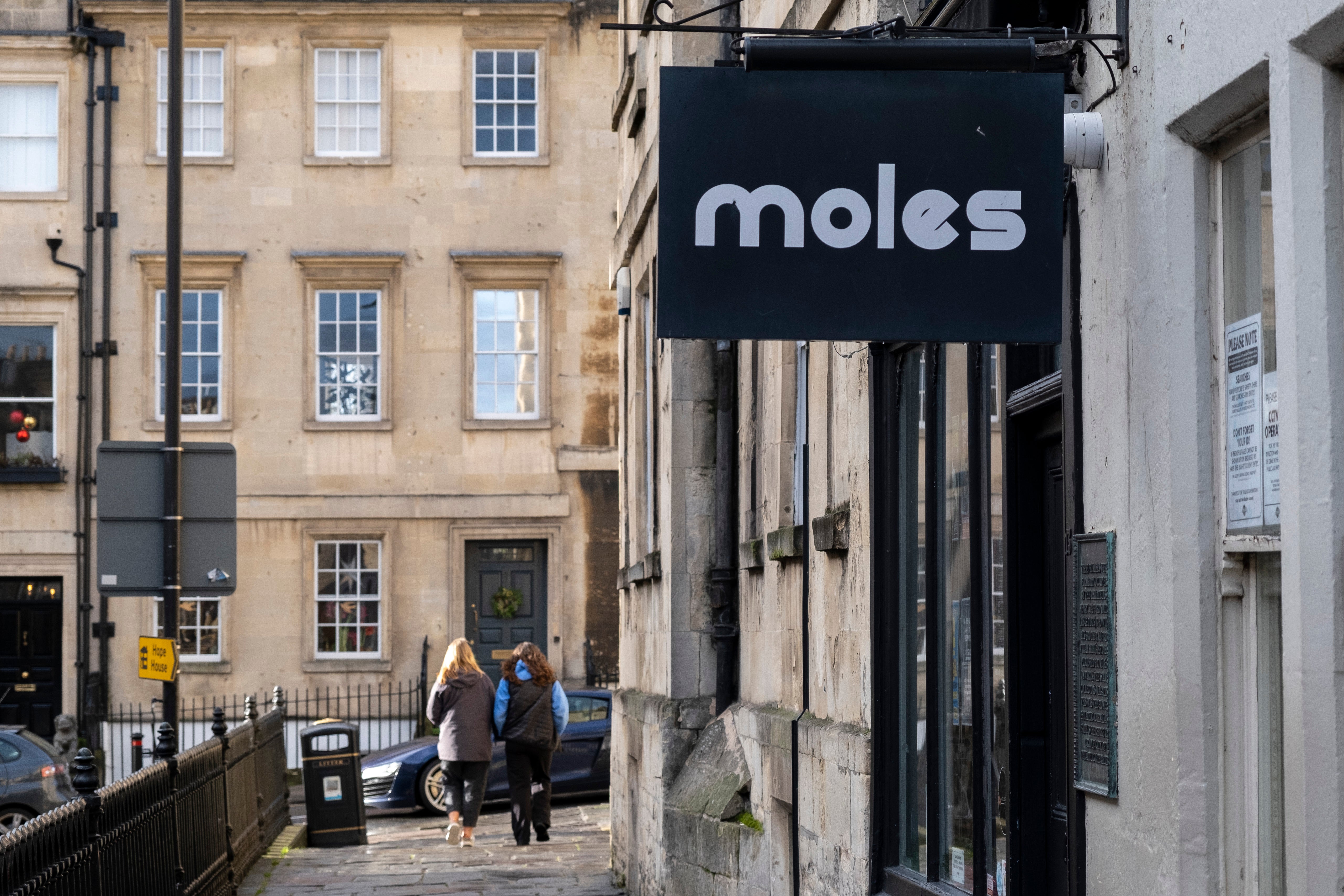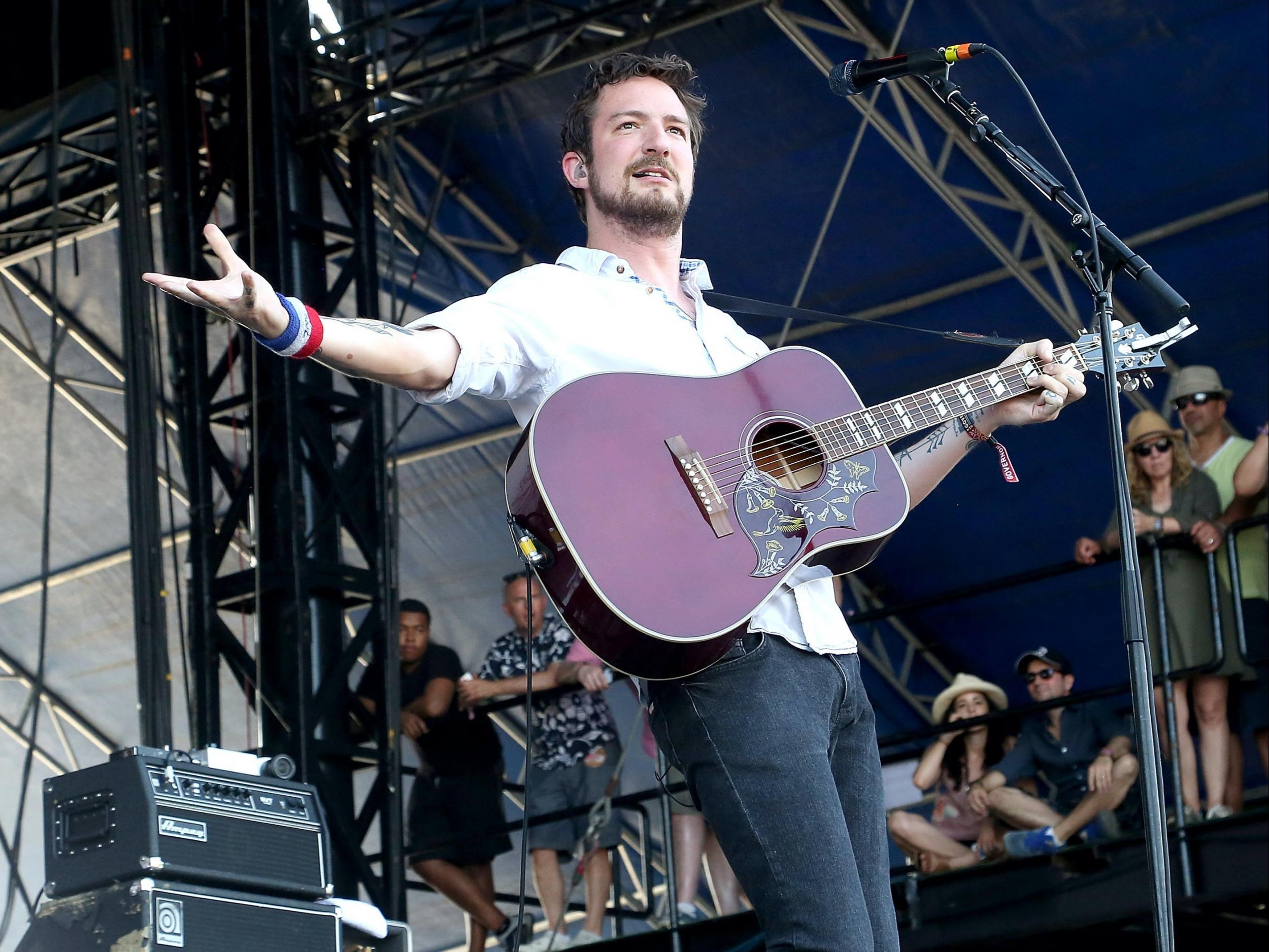Grassroots music venues faced ‘most challenging year’ in a decade in 2023
New report shines a stark light on the situation for the grassroots music scene, where some of the UK’s biggest stars began their careers
An average of two grassroots music venues closed permanently every week in 2023, marking what industry figures have described as the “most challenging” year in a decade.
The annual report from Music Venue Trust, the charity set up to protect and improve live music spaces in the UK, found that 125 spaces closed their doors to live music in the last 12 months.
High-profile cases included the popular Moles club in Bath, which had played host to future stars including Oasis, The Killers, and Ed Sheeran.
Announcing the news in December, its co-owners said it had been a “horrendous” decision to make but they had been left with no other choice, as they called for a “major shake-up” of the live industry.
The report also found that, despite contributing over £500m to the economy and employing close to 30,000 people, the grassroots scene remained “significantly underfunded compared to other areas of culture”.
MVT representatives said the report painted “a stark picture” of the challenges still facing the majority of live music spaces, even as companies and artists at the top end of the industry enjoy record-breaking revenue and profit.

“2023 was the worst year for venue closures since Music Venue Trust launched 10 years ago,” Beverley Whitrick, COO of Music Venue Trust, said in a statement.
“We are still losing on average two venues a week and those that have survived are now consumed by threats to their continued existence that they have no chance of overcoming without immediate help.”
She added: “Without external support our entire sector would be bankrupt. We have been warning of these consequences for the last six years, yet still the top end of the live music sector posts record profits while, with a few notable exceptions, turning a blind eye to those who discover, nurture and develop the artists that generate that revenue for them.”
Mark Davyd, CEO of Music Venue Trust, said the report spoke for itself and warned that the situation could not be allowed to continue.
“We must either find a way to act collectively to get these venues and the artists who rely on them the financial support they need to survive or we will seek legislation to compel it,” he said.
Davyd has repeatedly called for the introduction of a levy that would ensure a contribution from “the most successful parts of our industry” into the grassroots scene from which many of the UK’s biggest artists emerged.

“The idea that we, as an industry, cannot voluntarily create a levy to support our grassroots sector, unilaterally and without government intervention is absurd but we cannot escape the fact that we are simply not acting fast enough,” he said.
“It’s time to stop the excuses – we can no longer accept complacency from those in a position to help prevent the annihilation of our sector.”
Last year, the Music Venue Trust successfully launched its “Own Our Venues” scheme, creating a National Trust-style venture where the organisation raises funds to buy music spaces and help secure their future.
The scheme is backed by artists including Ed Sheeran, who said in 2022 that independent venues were “so important” to the community.
Singer-songwriter Frank Turner, a longtime campaigner for the UK’s music venues and former ambassador for Independent Venues Week, told The Independent that grassroots spaces were essential for nurturing new talent.

"Underground, independent music venues are the sine qua non of the popular music part of our culture, which itself is a significant component of our culture and economy,” he said.
“They’re effectively an R&D department, allowing new talent to develop and find an audience, which can then go on to greater things. But they also provide a place for a whole ecosystem of less ambitious (but no less artistically valid) forms of artistic expression to thrive.
“Any society serious about its own art, culture and self-expression would treat them with the reverence they so clearly deserve; the fact that we broadly don’t is, in my view, telling.”
Join our commenting forum
Join thought-provoking conversations, follow other Independent readers and see their replies
Comments
Bookmark popover
Removed from bookmarks